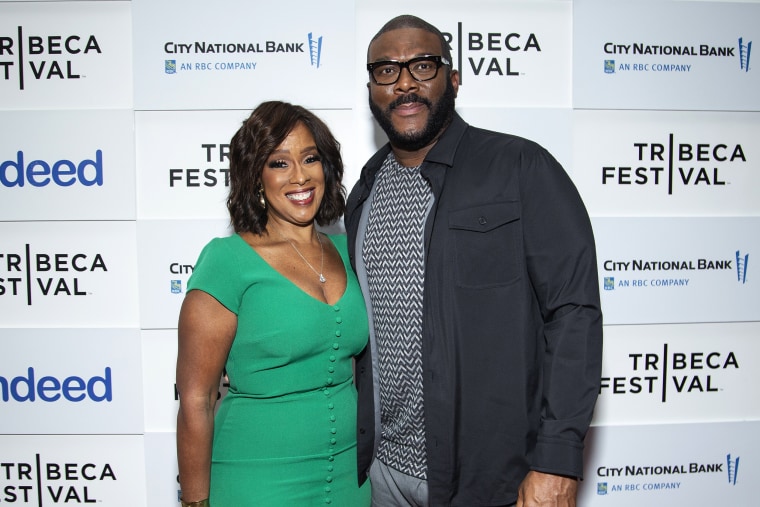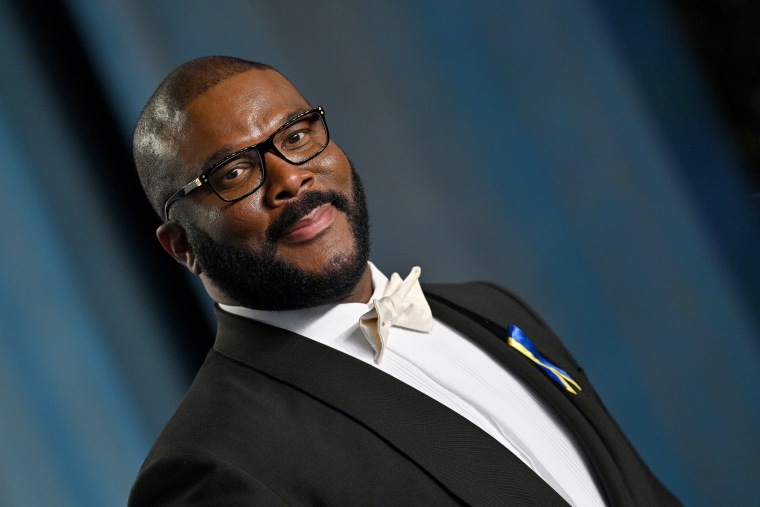Filmmaker, actor and studio owner Tyler Perry has found success in his career, and says he’s motivated to keep going by the people who work for him and the ancestors who came before him.
During Tribeca Film Festival’s “Tribeca Talks” directors series, Perry sat on Monday with CBS Mornings co-host Gayle King and discussed his difficult career journey along with his plans of extending his legacy through his production company.
“At this moment, it really is about legacy,” Perry said during the 60-minute interview.
With more than 13 films, 22 theatrical plays and seven television shows under his belt, Perry has leaned on creating work that resonates with Black people. Outside of his work, he continues to tell a unique story through the land that holds Tyler Perry Studios, a former Confederate base now owned by a powerful Black filmmaker.
Located in Atlanta, Tyler Perry Studios stretches across 330 acres of land on what was Fort McPherson, a deactivated Army base built by slaves and once used by the Confederate government during the Civil War.
“To have me be the owner of that very land that people were plotting and planning on how to keep 3.9 million Negros enslaved on, be owned by one Black man,” Perry said, “I think about those people — the ancestors — and what they must think if they could know that. Like, what would that feel like?”

The land — which King said was larger than multiple major studios including Warner Bros., Disney and Paramount and Sony combined — currently holds 12 sound stages that are named after “African Americans who really inspired me,” Perry said, including Oprah Winfrey, Denzel Washington, Cicely Tyson and Sidney Poitier.
Perry’s vision became clear during a visit to the Biltmore Estate in North Carolina, where he realized there were few Black people who owned historic properties throughout the country. He also said he wanted to create something special that future generations can get inspired by.
Perry cited his great-grandfather, who was enslaved, as one of the individuals who motivates him to succeed. “I’m on the wave that they set in motion,” he said. “So I feel like I’m supposed to live well. I feel like I’m supposed to have everything that I want. Not just for me, but for everyone who didn’t get it.”
One way Perry is actively continuing his legacy is through building the studio’s workforce, which he said is 99 percent Black. The company also hires a wide range of individuals, including people who lived in shelters and people who have been formerly incarcerated.
“It’s not just about what I’m doing,” Perry said. “It’s also about all the people that’s affected.”
During the interview with King, Perry also highlighted the political divide and the social injustices in the U.S., which he said is one of the reasons his beloved Madea character returned to the screen after her 2018 “retirement” -- “A Madea Homecoming” was released on Netflix in February. He also said that the hate, anger, rage and constant flow of difficult news inspired him to make something to help people laugh.
“I’m very concerned about the direction of the entire world … this country,” Perry said, “the hatred of all people for just being people.”
During the interview, Perry spoke about his upcoming film, “A Jazzman’s Blues,” which centers on a jazz singer and Holocaust survivor in 1942. Perry said he’s witnessed certain “political motions” related to opposition of critical race theory and banning books, and said now is the moment to share this story.
Beyond the screen, Perry said his legacy also extends through his son Aman, 7, who he’s kept out of the public view because he wants him to form his own identity before “people start trying to tell him who he is or who his father is,” Perry said.
“When you give the world so much, you got to keep some things for yourself,” he said, “and that for me — my fatherhood, me raising this incredible boy — is something I keep close to my heart.”

